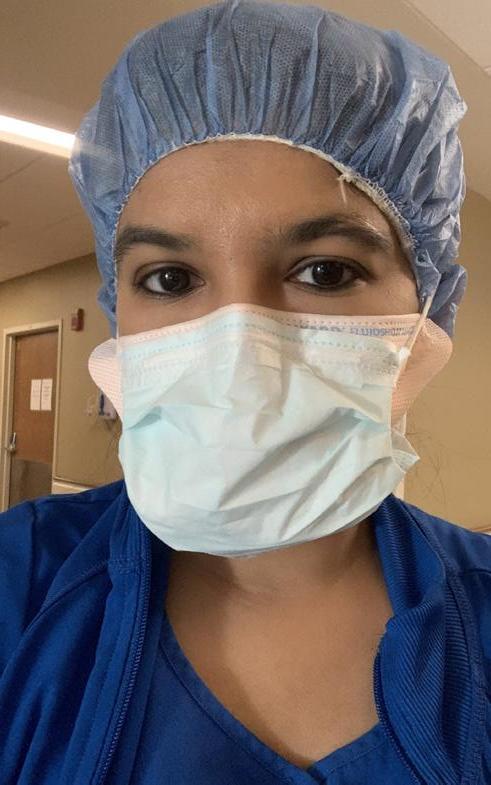
2 minute read
On the Bleeding Edge of the Pandemic
from SEEMA Magazine
by SEEMA
SOPHIA FRANCIS, A REGISTERED NURSE, ON SOLDIERING ON AT AN UNDERSTAFFED HOSPITAL DURING A PANDEMIC
NIRVANI WILLIAMS
Registered nurse, Sophia Francis, does not want to be called a hero. She just wants you to wash your hands.
“There have been times where I’ve come home from work and my hands are burning because I washed them so much,” she says. “It shouldn’t be this extreme for everyone, but you should wash your hands before or after being out in public. That’s number one.”
She confronted Covid right after the virus landed in the U.S. last March. She was then working at Holy Cross Hospital in Silver Spring, Maryland, when the first patients were rushed into the intensive care unit, coughing profusely and gasping for air. Doctors and nurses were not just scared and overwhelmed, they were merely trying to stay alive.
By March 26, 2020, the United States officially became the country hardest hit by the pandemic, with 81,321 confirmed cases and more than 1,000 deaths. This was more than the number of reported cases in China, Italy, or any other country.
While terrified at the number of Covid patients coming in, Francis persisted through the bleakness with inadequate personal protection equipment, better known as PPE, to fend off the virus.
“There were several shifts where we would have to reuse the same isolation gown. They’re supposed to be for one-time use, but we would have to carefully put them on and take them off because there was not enough PPE,” Francis said on a phone call with SEEMA.
As happens in many Indian families, she lives with her elderly mother, who wanted her to quit her dangerous job, but Francis was determined to keep working.“I can’t just leave my co-workers hanging like that,” she says. “When it comes to health care workers, we all tend to [look] for our team members... They’re going to be short another nurse. Before the pandemic, hospitals always needed more nurses... The pandemic just exacerbated that.”
In April, then President Trump announced that each state’s governor would “call the shots” on how to handle the pandemic and reopen. Maryland Governor Larry Hogan, mobilized and provided hospitals in both Maryland and the Washington metro area with sufficient masks and supplies. These supplies allowed Francis to protect both herself and her mother.
While hospitals once competed for equipment, now they compete for nurses. Most nurses are leaving their permanent positions in hospitals to become travel contract nurses and get paid three to four times more than they did as staff. Now Francis works the night shift as a local contract nurse at Prince George’s Hospital Center in Cheverly, Maryland.
The surge in Covid-19 cases since the fall has turned hospital staffing into a national bidding war, with hospitals willing to pay exorbitant wages to secure the nurses they need. That threatens to send more nurses to affluent areas, leaving rural hospitals and urban public hospitals short-staffed as the pandemic worsens and others unable to care for critically ill patients. Francis says hospitals were always short of nurses; the pandemic just made the problem worse.
“Covid is real,” she stresses. “I’ve seen young patients in their 20s with Covid on life support. Health care workers don’t want to be called heroes. We want to see you do your part by social distancing, wearing your mask, and washing your hands.”











